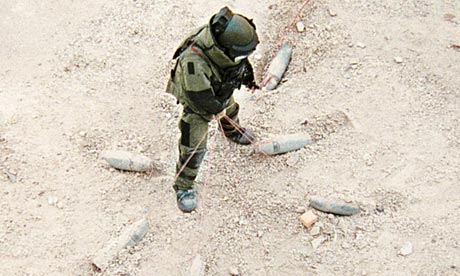
In "Black Hawk Down," The Rangers were after a man named Mohamed Farah
Aidid. We didn't really know his background except that he was a
Somalian warlord and that U.N. and U.S. troops were trying to capture
him. In the movie a lot was left out about the Somalian like where he
was from, what he did, how he was the leader of a powerful Somali clan,
and how he became such a big name to everyone in Africa.
Aidid was born in a country called Beledweyne in 1934. According to
Wikipedia he was educated in Moscow and Rome and later joined Somali
National Army. In the year of 1969 he was the Army chief of Staff during
the time the second President was assassinated. Aidid was detained for
six years and released to fight in the war against Ethiopia in 1977.
Aidid later served in the new President's Cabinet as Somalia's
Ambassador.

In the 1980's, the leader of Habr Gidir, Aidid competed for the power against Ali Mahdi Mohamed
after the outbreak of civil war. During this time the U.N peacekeeping
coalition started the two-year United Nations Operation in Somalia. This
invasion of the U.N. and U.S. troop felt like a threat towards Aidid
and many others competing for power during the time. Aidid's fighters
caused the Battle of Mogadishu. An attempt to capture Aidid in 1993
which ended with 1'500 Somalians and 18 Americans killed. After Clinton
called his troops back, Aidid declared hisself as President of Somalia,
but his declaration was unrecognized due to the fact that his rival Ali
Mahdi Muhammad was elected as President at a conference in Djibouti.

According to
Wikipedia, on July 24, 1996, Aidid and his men clashed with
the forces of former allies Ali Mahdi Muhammad and Osman Ali Atto.
Aidid suffered a gunshot wound in the ensuing battle. He later died from
a heart attack on August 1, either during or after surgery to treat his
injuries.
The actions that Aidid made to obtain power, would you consider him as
another Hitler?










